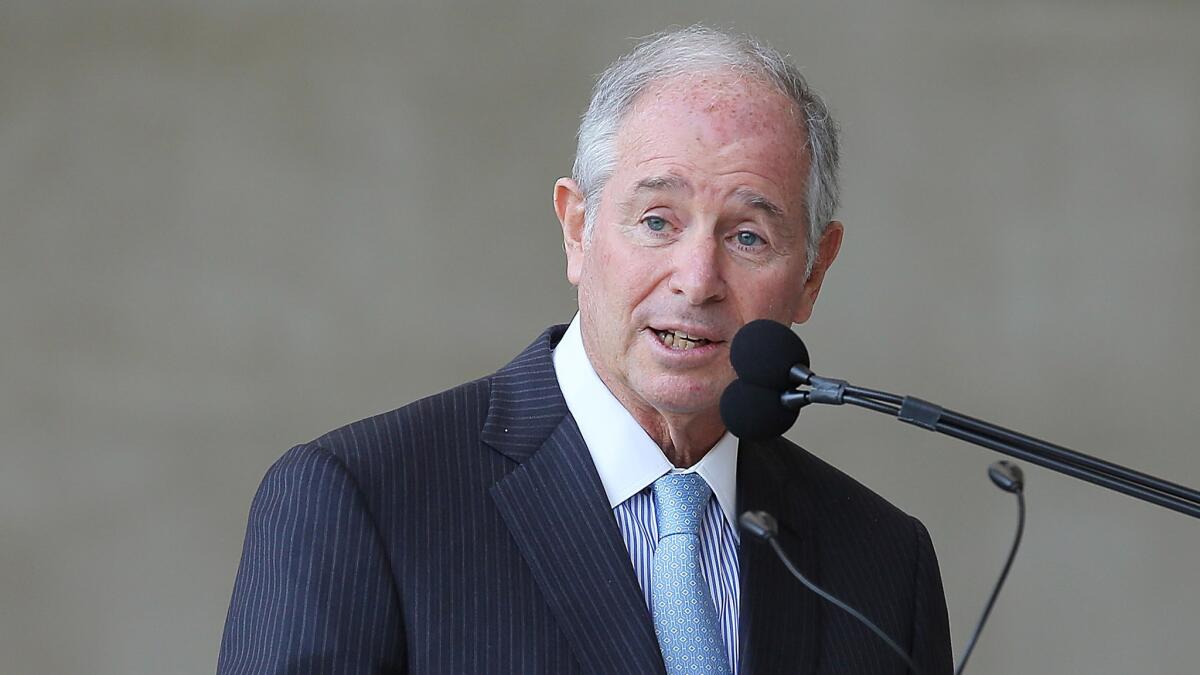Private equity giants urge companies they own to tap credit as markets melt down

Private equity titans Blackstone Group Inc. and Carlyle Group Inc. are sending a message to the companies they control: Do whatever it takes to stave off a credit crunch.
Those businesses are joining a growing wave of corporations drawing down bank credit lines to help prevent any liquidity shortfalls amid signs of mounting stress in markets. At Blackstone, which has weathered a variety of crises in its 35 years, the focus is on sectors hurt by the coronavirus, such as the hospitality industry, as well as energy firms facing a slump in oil prices, according to people with knowledge of the matter.
At Carlyle, the measures aren’t widespread, other people said. The firm has been having broad discussions with management teams at portfolio companies and recommended drawing credit lines in certain instances, according to people familiar with the matter. Decisions are based on industries, regions and other factors, the people said.
Spokespeople for the two firms declined to comment.
The moves — along with similar plans by Hilton Worldwide Holdings Inc., Wynn Resorts Ltd. and Boeing Co. — are signs of the uncertainty coursing through corporate America as a global pandemic, a price war in oil markets and other problems threaten to tip the U.S. economy into a recession.
Companies affected by the virus are increasingly turning to banks for short-term financing to provide a safety net. Should credit conditions worsen, more firms may start to draw down their credit lines, market watchers say.
Boeing Co. is planning to draw down the full amount of a $13.8-billion loan as early as Friday as the planemaker grapples with worldwide travel disruptions from the coronavirus, people familiar with the matter said. United Airlines Holdings Inc. raised $2 billion in new liquidity with a secured-term loan, while Norwegian Cruise Line Holdings Ltd. recently signed a new $675-million revolving credit line.
A sudden and sustained increase in companies tapping credit lines could eventually strain banks if conditions become so dire that borrowers won’t be able to meet their obligations.
Lenders offer revolving credit lines to strengthen relationships with companies and don’t typically intend for them to be drawn upon en masse. In normal times, revolvers serve as the corporate equivalent of credit cards, giving companies room to borrow as needed and repay when shortfalls ease.
Under normal circumstances, the lines are seldom maxed out. Extensive use can be seen as a harbinger of distress.
Oil and natural gas companies can come under particular funding stress when prices fall. That’s because their credit lines are periodically updated based on market prices, potentially motivating companies to tap them early.
Blackstone’s private equity operation is the firm’s largest business by assets, at $183 billion. Energy accounts for almost 10% of the total portfolio, the New York-based company said in October. Rival private equity firms also are weighing similar actions, according to executives at two of them.
“From an economic perspective, the virus has created dislocation in the market and fear among the people,” Blackstone co-founder Stephen Schwarzman said in an interview in Mumbai last week. “Once that starts, one has to find the impact of negative consequences.”
But the turbulence can also have an upside for firms with a war chest, he said. “It creates a substantial opportunity to buy assets and give credit.”
More to Read
Inside the business of entertainment
The Wide Shot brings you news, analysis and insights on everything from streaming wars to production — and what it all means for the future.
You may occasionally receive promotional content from the Los Angeles Times.










